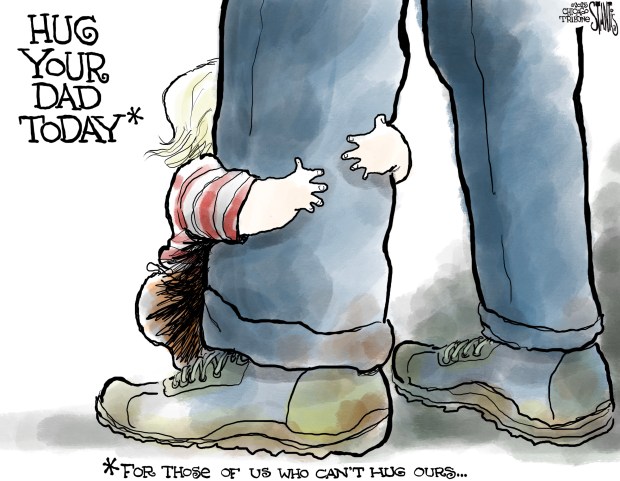The political operations of national and Illinois Realtor groups have dumped a lot of money into killing Bring Chicago Home, an initiative that would raise the real estate transfer tax on luxury properties and create $100 million a year in dedicated funding to fight homelessness.
These opponents of Bring Chicago Home claim they are concerned about the cost of housing, but the ugly truth is that their own practices have been affecting housing costs for decades. The Tribune Editorial Board rightly calls this out in an editorial on a class action lawsuit against the National Association of Realtors, which has been accused of price-fixing commissions (“The law is catching up to rip-off real-estate commissions. It’s time for a change.,” March 3).
A recent WBEZ report found that 600,000 people are rent-burdened (defined as having to spend more than 30% of their income on rent and utilities), meaning that close to half of all Chicago renters are one unlucky break away from being evicted or becoming homeless themselves. Bring Chicago Home is a real solution: a fair and sustainable way to pay for housing construction, rental assistance and support services.
Anyone who actually cares about the housing affordability crisis in Chicago should not listen to the Realtors’ political operations but should instead listen to the families, community organizations, social service providers and longtime advocates who are urging us to vote “yes” on the ballot question to Bring Chicago Home.
— Roderick Wilson, executive director, Lugenia Burns Hope Center, Chicago
Appeals court ruling a reprieve
The Illinois Appellate Court’s reversal that allows the votes to be counted for the Bring Chicago Home referendum should not be seen as a victory for Mayor Brandon Johnson but rather a temporary reprieve. The appellate court ruled that the court has no jurisdiction to decide at this time whether the referendum question is valid.
What this means is that the courts cannot rule on the tax increase until two things have happened: First, the referendum must pass, and second, the City Council has to vote to increase the real estate transfer tax. Only then can the courts decide whether the City Council properly increased the real estate transfer tax.
I encourage everyone to read the appellate opinion itself and the relevant Illinois statute, but in short, for a municipality in Illinois to increase a real estate transfer tax, the municipality must first have a referendum increasing the tax put to the voters and passed by the voters before the municipality’s city leaders can impose the increased tax. However, a municipality does not need to have a referendum first to decrease the tax.
Thus, Johnson and the City Council did not need to ask the voters in the referendum to decrease the tax. In fact, city leaders could decrease the tax tomorrow if they wished (assuming that the city follows open hearings rules, but that’s another topic). This is why the referendum is an example of “log rolling” or “sugar coating” because City Hall could have just asked the voters to decide for the tax increase only.
This is why this ruling is only a reprieve because if the referendum passes and if the City Council passes the tax, then with a newly activated jurisdiction, the courts will most likely strike down the tax because the referendum violated the state constitution’s prohibition on “log rolling.” By the time the courts strike the tax down, the general election will have already passed, and Johnson will have no time left in his term to put another referendum forward.
I am not an advocate for this measure; however, given Johnson’s need to show political prowess rather than ineptitude, he should consider doing another referendum in the general election with just the tax increase.
— Joshua Richards, attorney, Chicago
A better written referendum
I commend letter writer Mary Friedlieb (“Bring Chicago Home half a plan,” Feb. 29) for her correct comments on the Bring Chicago Home plan. There is considerable money flowing into advertisements on TV on both sides, which don’t accurately reflect the problem with the proposed referendum. As she clearly points out, there is no defined and credible explanation on how the money brought in from the tax increase would be used and how it would be fiscally managed.
Aside from what a judge and legal professionals have said — that the language is poorly written — if people see it on the ballot, they should vote “no.” The people behind the initiative can certainly try again with a better written referendum that explains the fiscal controls on how the money will be protected from abuse by politicians.
Perhaps, instead of wasting money on bike lane improvements, divert that money to fighting the bigger issue of homelessness. Heck, there should have been a referendum on whether taxpayers wanted their taxes diverted for the numerous Chicago Department of Transportation bike projects that someone managed to push through as if taxpayers are an open checkbook.
— Jean Brennan, Chicago
Israel now in worse situation
Letter writer Steven D. Franklin quotes Golda Meir in his March 1 remarks about the state of Israel’s “justification” for the siege of Gaza (“Israel’s highest obligation”): “If we have to have a choice between being dead and pitied, and being alive with a bad image, we’d rather be alive and have the bad image.”
Actually, a third choice is in process. The Israeli government is choosing “dead with a bad image.” There are now 2 million Palestinians with reason to wish ill of Israel. Israel’s major ally, the U.S., is being accused of complicity in a genocide not only by Arab Americans and left-leaning citizens, but also by many members of the international community.
The horror of Oct. 7 cannot be understated. However, Israel is in more peril now than it was prior to those atrocities.
— Margaret Sents, Glenview
End the war; return the hostages
In response to Steven D. Franklin’s letter about the two-state solution, he is correct in that Israeli Prime Minister Benjamin Netanyahu’s government never wanted a two-state solution; Israeli Prime Minister Yitzhak Rabin’s signing of the Oslo Accords cost him his life. Franklin is also correct that the Hamas terrorists initiated the current war and could end it by releasing the hostages and surrendering, but they’re not.
Hamas and Netanyahu’s government are responsible for the reported 30,000 deaths of Palestinians, and the whole world is watching in horror. The Israelis will end up winning the war but losing much world support if the current rate of Palestinian civilian death continues much longer. Hamas and Netanyahu’s government need to stop this war now and bring the hostages home.
— Andrew Kachiroubas, Chicago
What was Israel supposed to do?
It was a mistake for President Joe Biden to say he supports Israel, no matter what. I doubt he really meant that. Were Israel to drop a nuclear bomb on Gaza or cause the deaths of a million of Gaza’s citizens, I’m sure Biden would withdraw his support.
For all those who deplore Israel’s actions in retaliation after Hamas massacred 1,200 Israelis on Oct 7, I agree that Israel has gone too far. Totally eliminating the possibility of being attacked again is an illusion.
But what should Israel have done? Turn the other cheek? Let Hamas massacre again? Would any of us accept that response if 1,200 of our fellows were massacred and if the opposition’s stated objective was to continue killing?
What was and what is the appropriate response?
— Kevin Coughlin, Evanston




